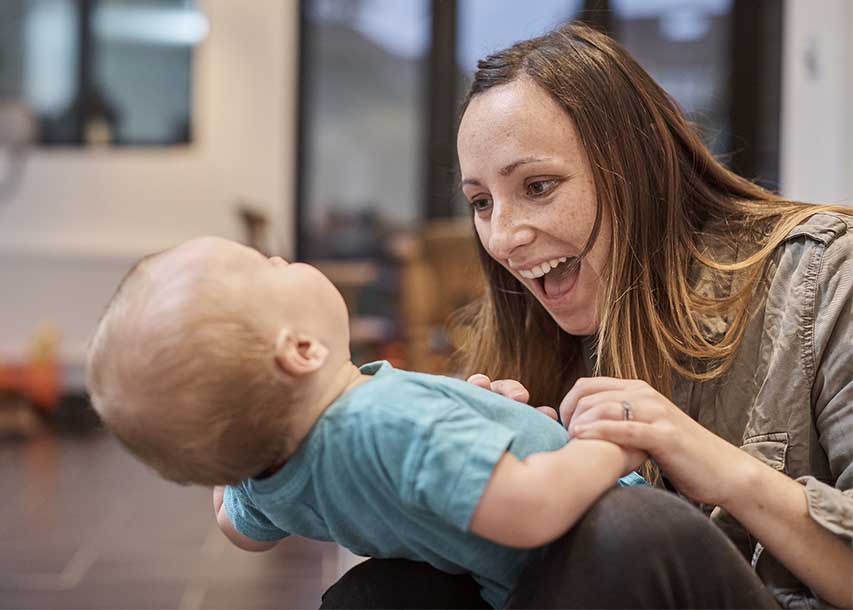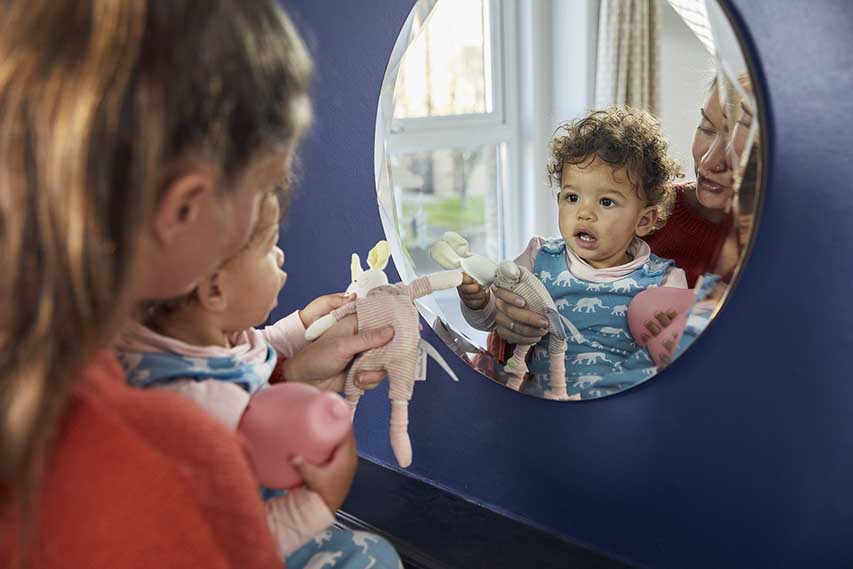Sign Up To Baby Brain Tips Says NSPCC
NSPCC Northern Ireland is encouraging parents in Northern Ireland to sign up to baby brain building tips and to get involved with Look Say Sing Play programme.
Already 235 parents and carers living in Northern Ireland have recently signed up to receive a weekly email from the NSPCC to help them build bonds with their baby and develop their brains.
The emails, which form part of the children’s charity’s Look Say Sing Play campaign, offer tips on anything from singing, using silly voices to just talking to babies about the world around them. It explains the science behind why it is good to do this, in a friendly, supportive and accessible way.

The weekly email tips are designed to show parents and carers how they can easily fit these actions into everyday life and reassure them of the amazing effect these simple interactions can have.
Kathryn, mum to Barnaby, signed up to the Look Say Sing Play emails during lockdown. She said: “I wanted to thank you so much for all the emails and ideas they gave me when I had my baby. It’s my first baby, born in lockdown and with limited ideas of what to do. Your emails every week gave me something to focus on and think about and helped me through lockdown.
“My baby has recently turned two and so I am no longer receiving the emails. When your last email came through I felt sad as it felt like the end of an era but I have a cracking two year old now and we’re on to new adventures.”
Every time a parent or carer plays or interacts with their baby – from the day they are born – they are not only creating a bond with them, they’re also helping to build their brain.
Research has shown that when an infant babbles, gestures or cries and an adult responds positively with eye contact, words or a hug, neural connections are built and strengthened in the child’s brain.2
The studies show that taking a cue from a child and reacting to what they’re doing is so important. Like a game of tennis, this back-and-forth interaction from birth can help babies’ social, emotional and cognitive development.

Margaret Gallagher, Head of Local Campaigns for NSPCC Northern Ireland, said: “Look Say Sing Play isn’t about doing anything different or changing routines, it’s about showing how the things we instinctively do as parents help babies develop.
“Whether it’s bath-time, bedtime or when you’re washing up, playing with your baby, using silly voices, or even singing can build their brain right from birth. It’s a great way to have fun while making your bond even stronger. Every interaction you have is setting them up for the best start in life.
“It’s fantastic that over 200 parents in Northern Ireland have already signed up to the Look Say Sing Play weekly tips. If you’re expecting or have recently had a baby visit the NSPCC website to find out more and to sign up. It’s completely free and each tip is tailored to the age of your baby.”
The messaging behind Look Say Sing Play is:
Look at what your baby is focusing on and how they react. See what they find interesting or funny, copy and react to what they do.
Say what you’re doing and copy the sounds your baby makes. Talking about simple actions as you do them is a great place to start. Try adding silly voices and use expressions to bring your words to life.
Sing along to your favourite tunes or make up your own. Try using familiar tunes and changing the words to describe things you’re doing.
Play simple games and see what your child enjoys. Try playing peekaboo, mess about with bubble bath, or even turn sorting laundry into a game. Over time, you can add playful moments throughout the day.
To deliver Look Say Sing Play the NSPCC is working with Vroom, a US public health initiative from the Bezos Foundation which has thousands of brain-building tips created and tested by behavioural scientists.
To find out more about the campaign or to sign up for the weekly email tips, visit:























